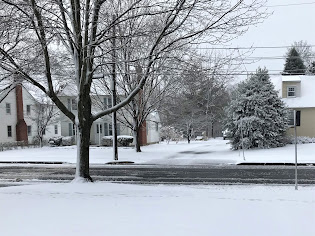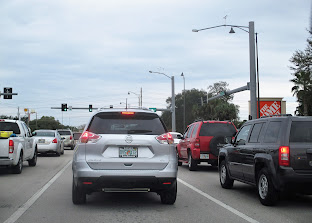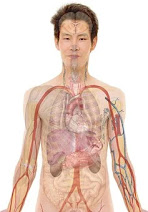I learned how to drive in our old VW bug. The car had no radio, hand-crank windows, and a four-speed manual transmission. I was pretty proud of my skills with a manual transmission, because not everyone could do it.
But now, if you mention a manual transmission, people don't even know what you're talking about. If you want a manual transmission in your new car you have to special order it . . . and wait a few months for someone in China to build it.
Definitely, driving a manual transmission car, being able to stop and start on a steep hill -- that's an obsolete skill.
What else is obsolete?
Fixing a car. You don't fix a car anymore. You just replace a computer chip.
Reading a map. Everyone uses GPS now. My kids have no idea where they are, much less how they got there. They just follow instructions from their iPhone.
Tuning into a radio station. I used to be able to rotate the dial and find Cousin Brucie on WABC 770 in New York, without looking at the display -- and when I was in the car, without taking my eyes off the road. Later on as a young adult I could find 1010 WINS, "all news, all the time." Now I just ask google to get whatever I want. I don't even have to touch the device. My sixth sense on the radio dial is completely obsolete.Writing. Remember in fourth grade -- or sometime around then -- learning how to write in script? Those flowing "a"s and bulbous "b"s? And how the "h" went above the line, and the "g" below the line? Nobody picks up a pen or pencil anymore.
Typing. I took a typing class in summer school, the summer after 11th grade. I tested at 50 wpm, and later managed 60 wpm when I got a Smith Corona electric my sophomore year in college. I was pretty proud of that, since all my friends either had to beg a girl to type their paper for them, or else they employed the hunt-and-peck method at around 20 wpm. But nobody types anymore. They thumb their text messages. That, however, turns out to be a skill beyond me. I resort to hunt-and-peck on the phone.
Sewing. I recently found out that my wife owns a sewing machine -- and has for most of her adult life. I've known her for 20 years. But I've never seen this machine, much less ever witnessed her actually sewing. Is that because I'm an insensitive, inattentive male? No! It's because she hasn't used her sewing machine even once in all these 20 years.
Balancing a checkbook. What's a checkbook? Plastic is the way we pay these days, and even that's starting to get phased out, as the humble check was years ago. Soon we'll all just hold up our phone to a sensor. As for cash? That's for drug dealers only. And coins? People won't even pick them up off the ground.
Telephone voice. It used to matter how you answered the phone, especially in business. You want to welcome your customers . . . and your friends. But nobody telephones anymore because nobody answers the phone anymore . . . because the only calls we get are robocalls. Instead we text, email, zoom, tweet or Instagram.Filing. There used to be a job title called "File clerk." No more. Files are gone. Paper is gone. Sorting by alphabet is a lost art. Now everything just gets sent to the cloud -- and the computers do the sorting.
Tying a Windsor knot. Sporting a Windsor knot in your tie used to be a mark of class. Everyone knew you were destined for the executive suite. Now the black t-shirt is the dress code of executives. And a Windsor knot is nothing but a sign of pomposity. I don't know what the female equivalent of the Windsor knot is . . . maybe wearing a skirt and high-heels?
I remember my first resume. I listed Xeroxing under my skill set. Well, that was pretty lame, even then. But if you know how to mimeograph, if you know how to Fax, don't tell anyone. If you use a paper calendar, hide it under your desk. And if you still have an aol email account . . . well, I guess that's okay if you're driving around with a manual transmission.





